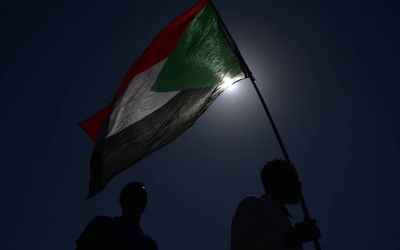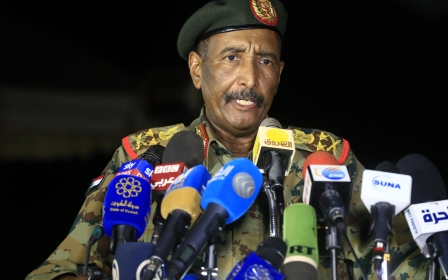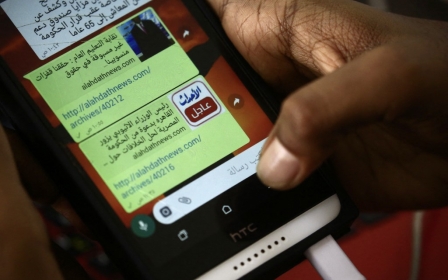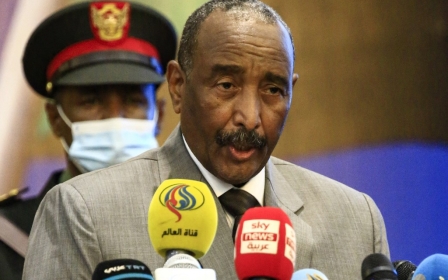Sudan coup 2021: US pauses $700m in aid after military takeover
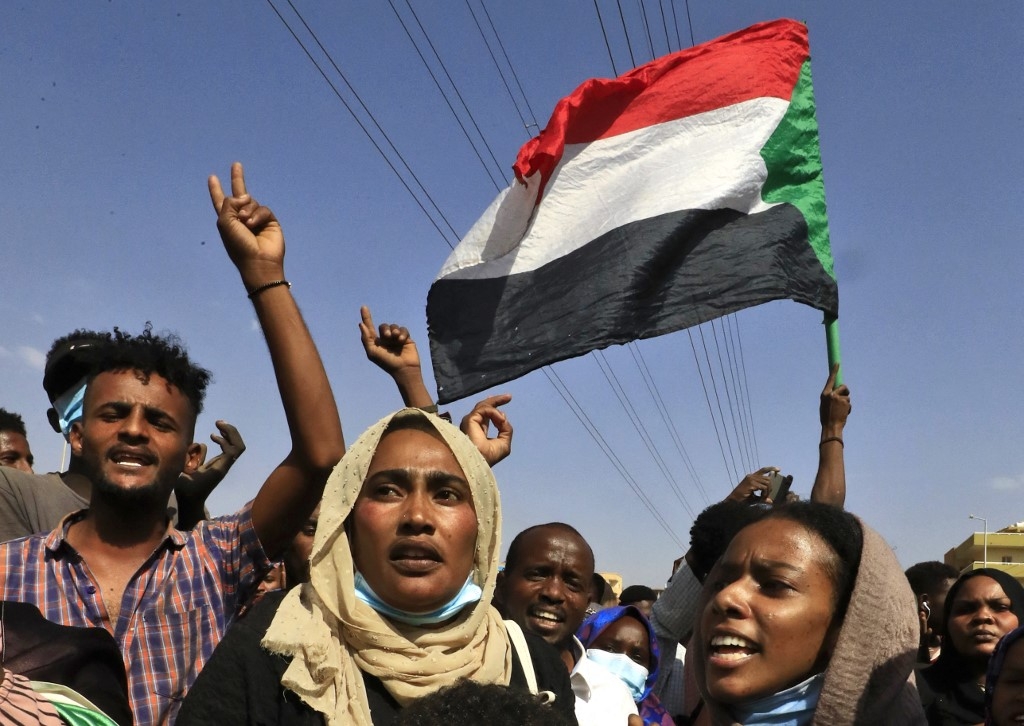
The United States announced on Monday that it was pausing $700m in emergency assistance funds for Sudan following a military coup against the country's civilian leadership.
"The United States condemns the actions taken overnight by Sudanese military forces. The arrest of civilian government officials and other political leaders, including Prime Minister [Abdalla] Hamdok, undermines the country's transition to democratic civilian rule," State Department spokesperson Ned Price told reporters during a news conference.
"In light of these developments, the United States is pausing assistance from the $700m in emergency assistance appropriations of economic support funds for Sudan."
Price noted the funds were meant to assist Sudan in its democratic transition and said Washington was evaluating its next steps for approaching the country.
Earlier on Monday, Sudanese armed forces arrested five ministers from the transitional cabinet, including the country's Prime Minister Abdalla Hamdok.
General Abdel Fattah al-Burhan - the head of the army and chairman of the Transitional Sovereign Council (TSC) - declared a state of emergency across the country, and announced the dissolution of the TSC and the government.
Hamdok said the moves represent a "complete coup d'etat" and called on the Sudanese people to take to the streets to defend their revolution peacefully.
Protesters responded to the coup by blocking roads with burning tyres in the capital Khartoum, and were met with gunfire from military forces, leaving at least three people dead and 80 people injured.
The actions have been condemned by several international powers, including the United Nations and the African Union, which has since suspended Sudan's membership.
Price added that the US considers the move a "military takeover", but would not undertake a determination into whether a coup took place because Washington is already operating under the 1989 coup determination, when former President Omar al-Bashir came into power through a military takeover.
Humanitarian commitment 'will not change'
The actions on Monday came a day after the US envoy for the Horn of Africa, Jeffrey Feltman, met with Burhan and Hamdok and conveyed support for the civilian-led democratic transition.
Feltman also condemned the military's move, calling it "utterly unacceptable" and saying that it "puts at risk U.S. assistance" to the country.
Despite the pause in emergency assistance, the State Department said it will continue to provide Sudan with humanitarian aid. The US is the single largest humanitarian donor to Sudan, and in 2021 has provided nearly $377m in aid to the country.
"Our humanitarian commitment to the people of Sudan will not change," Price said.
'A US aid cut will be bad for Sudan's economy, but far worse would be restoring formal sanctions or blocking Sudan's access to the IMF'
- Yezid Sayigh, Carnegie Middle East Center
He added that it is still too early to say whether Washington will impose santions on Sudanese officials, but that the US is "willing to resort to any and all measures" in order to hold acccountable "those who are engaged in violence, those who are responsible for derailing Sudan's path to democracy".
Yezid Sayigh, a senior fellow at the Malcolm H Kerr Carnegie Middle East Center, told Middle East Eye that Monday's developments will have an adverse impact on Washington's efforts to support the democratic transition.
Still, despite the announcement to pause assistance, Sayigh noted that the US may not go as far as issuing sanctions.
"A US aid cut will be bad for Sudan's economy, but far worse would be restoring formal sanctions or blocking Sudan’s access to the [International Monetary Fund] and other international sources of aid and credit - that would be close to a knock-out blow, which I suspect the US will refrain from," Sayigh said.
"After all, the US and [European Union] rewarded the Egyptian Armed Forces with recognition and massive financial assistance after it took power in 2013."
Sayigh added that "regional powers including Egypt, the UAE and Saudi Arabia - and Israel - may lobby to soften US and EU reactions, and help the Sudanese military hold out against pressure".
'Alarmed and disappointed'
Members of the US Congress also condemned the military's seizure of power, with Senator Chris Murphy, who serves as a member of the Senate Foreign Relations Comittee, calling for the release of Sudan's civilian leaders and a return to the democratic transition process.
"After decades of suffering under Omar al-Bashir's corrupt and oppressive regime, the people of Sudan had found hope in a democratic future, but this military coup puts that at risk," Murphy said in a statement.
'The junta's failure to reverse course will result in dire consequences'
- Congressmen Gregory Meeks, Michael McCaul, and Senators Bob Menendez and Jim Risch
"The United States and our regional partners should send a clear message to the Sudanese military that failure to take these steps jeopardizes the future of economic aid to the country."
In a joint statement by Congressmen Gregory Meeks, Michael McCaul, and Senators Jim Risch and Bob Menendez, the lawmakers said the military intervention was "a stunning betrayal" of the Sudanese people and poses a significant threat toward progressing Sudan-US relations.
"The junta's failure to reverse course will result in dire consequences," they said.
"We will remain engaged with the administration to assess the implications for our relationship with Sudan, including the immediate suspension of further international financial assistance and other appropriate measures."
Last December, Congress passed a bill that included restoring Sudan's sovereign immunity, which shields Khartoum from being sued in American courts for past terror attacks and removes a major hurdle to investments in the African country.
Middle East Eye propose une couverture et une analyse indépendantes et incomparables du Moyen-Orient, de l’Afrique du Nord et d’autres régions du monde. Pour en savoir plus sur la reprise de ce contenu et les frais qui s’appliquent, veuillez remplir ce formulaire [en anglais]. Pour en savoir plus sur MEE, cliquez ici [en anglais].


